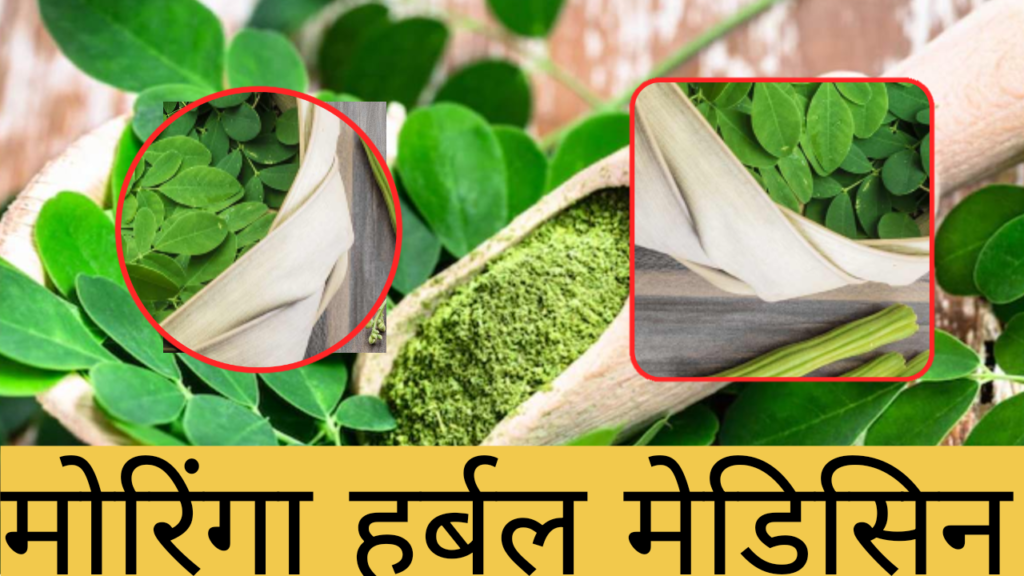ASO Titer and Its Connection to Ayurveda: A Comprehensive Guide
The ASO (Anti-Streptolysin O) Titer test is a diagnostic blood test used to detect a recent streptococcal infection. When a person gets infected with the Group A Streptococcus bacteria, the body’s immune system produces antibodies to fight the toxins released by the bacteria. One such toxin is called streptolysin O, and the antibodies against this toxin are known as anti-streptolysin O antibodies. A high level of ASO in the blood suggests a recent or ongoing streptococcal infection. If left untreated, streptococcal infections can lead to serious complications, such as rheumatic fever or post-streptococcal glomerulonephritis (a kidney disease).
Although modern medicine addresses this condition through antibiotics and other medications, Ayurveda offers a natural and holistic approach to managing and alleviating the symptoms of streptococcal infections and related conditions. Ayurveda emphasizes balancing the body’s doshas (Vata, Pitta, Kapha) and boosting natural immunity to combat infections.
Understanding ASO Titer: Causes and Implications
1. What Does a High ASO Titer Indicate?
An elevated ASO titer indicates a recent streptococcal infection that may result in various complications such as:
- Rheumatic fever: An inflammatory disease that can affect the heart, joints, skin, and brain. It is a severe consequence of untreated streptococcal throat infections.
- Scarlet fever: An illness that presents with a distinctive red rash and is often associated with a strep throat.
- Post-streptococcal glomerulonephritis: A kidney condition that may develop after a streptococcal skin or throat infection.
These complications often emerge when an infection is left untreated or improperly managed.
2. Conventional Treatment for Elevated ASO Titer
Typically, allopathic treatment for high ASO titer involves a course of antibiotics like penicillin to clear the infection. However, in cases where complications arise, more intensive treatment for conditions such as rheumatic fever or kidney problems is necessary.

Ayurvedic Approach to Elevated ASO Titer
Ayurveda addresses both the symptoms of streptococcal infections and the underlying immune imbalances in the body. Ayurvedic treatment is based on herbs, dietary modifications, detoxification processes (Panchakarma), and lifestyle changes to promote natural healing. Here’s how Ayurveda can help in managing high ASO titers and related health complications.
1. Balancing the Doshas
According to Ayurveda, an imbalance in the body’s doshas (Vata, Pitta, and Kapha) often makes individuals more susceptible to infections. For instance, Pitta imbalance is commonly associated with infections and inflammation. Ayurvedic treatment for ASO titer focuses on restoring balance, especially of the Pitta dosha, through dietary and lifestyle modifications.
2. Herbal Remedies for Boosting Immunity
In Ayurveda, certain herbs are believed to have antibacterial, anti-inflammatory, and immunomodulatory properties that can help the body naturally fight streptococcal infections and reduce the risk of complications.
Some effective Ayurvedic herbs include:
- Guduchi (Tinospora cordifolia): Guduchi is a potent herb known for its immune-boosting properties. It helps the body fight infections and reduce inflammation, making it ideal for treating infections that raise ASO titer.
- Ashwagandha (Withania somnifera): Known for its adaptogenic properties, Ashwagandha strengthens the immune system and helps the body recover from infections and stress-induced conditions like rheumatic fever.
- Neem (Azadirachta indica): Neem is a powerful antimicrobial herb. It can be used both internally and externally to fight infections, purify the blood, and promote overall health.
- Turmeric (Curcuma longa): With its anti-inflammatory and antioxidant properties, turmeric helps reduce inflammation and pain associated with rheumatic fever. The active compound in turmeric, curcumin, also acts as a natural immune booster.
- Tulsi (Holy Basil): Tulsi has been used in Ayurvedic medicine for centuries to treat respiratory infections, reduce fever, and strengthen the immune system. It is also beneficial for managing symptoms like sore throat and fever associated with streptococcal infections.
3. Ayurvedic Dietary Recommendations
Diet plays a significant role in Ayurveda. For individuals with elevated ASO titer, a Pitta-pacifying diet is recommended to reduce inflammation and support the immune system. Some dietary tips include:
- Cooling Foods: Fresh fruits and vegetables with cooling properties like cucumbers, melons, and leafy greens can help pacify Pitta.
- Avoiding Spicy and Sour Foods: Pitta dosha is aggravated by spicy, sour, and overly salty foods, so it’s important to avoid these during infections.
- Consuming Warm, Cooked Meals: Light, easily digestible meals like khichdi (a blend of rice and lentils) are nourishing and easy on the digestive system. Adding ghee to meals is also beneficial as it has anti-inflammatory properties.
- Herbal Teas: Teas made with tulsi, ginger, and licorice can soothe a sore throat and boost immunity.
4. Panchakarma (Detoxification Therapy)
Panchakarma is a key detoxification and purification process in Ayurveda. It helps remove accumulated toxins (Ama) from the body, which are believed to cause and aggravate infections.
For managing conditions related to high ASO titers, the following Panchakarma treatments may be recommended:
- Virechana (Therapeutic Purgation): This treatment helps eliminate excess Pitta from the body, which is often associated with inflammation and infection.
- Nasya (Nasal Therapy): In cases where respiratory or throat infections are prominent, Nasya can be used to administer medicated oils through the nose to clear toxins and reduce inflammation in the respiratory tract.
- Swedana (Therapeutic Sweating): Swedana helps in removing toxins from the body through sweating. It also promotes improved circulation and reduces joint stiffness, which can be beneficial in rheumatic fever.
5. Yoga and Pranayama for Immune Support
Yoga and breathing exercises (Pranayama) help boost overall immunity, reduce stress, and enhance oxygen flow in the body. Stress is a known factor in weakening the immune system, so managing stress through practices like meditation and Pranayama (such as Anulom Vilom and Kapalbhati) is crucial for maintaining balance and boosting the body’s natural defense mechanisms.
Yoga Asanas such as:
- Trikonasana (Triangle Pose)
- Setu Bandhasana (Bridge Pose)
- Bhujangasana (Cobra Pose)
are helpful in improving flexibility, circulation, and respiratory function, which can support the body in fighting infections.
6. Ayurvedic Emphasis on Lifestyle Modifications
Ayurveda also stresses the importance of lifestyle changes in managing and preventing infections. Some suggestions include:
- Regular Sleep: Ensuring 7-8 hours of sleep every night is essential for immune function.
- Hydration: Drinking adequate amounts of water, herbal teas, and warm fluids is necessary to stay hydrated and flush out toxins.
- Regular Exercise: Light exercises such as walking and yoga help maintain bodily strength and boost immune responses.
Conclusion
While conventional medicine focuses on treating streptococcal infections with antibiotics, Ayurveda provides a holistic approach by addressing the root cause and strengthening the body’s natural defenses. The combination of Ayurvedic herbs, dietary changes, detoxification processes, and yoga helps not only manage infections related to high ASO titer but also supports long-term immunity and well-being.
By integrating both Ayurvedic and modern medical practices, individuals can find a balanced approach to managing streptococcal infections, reducing the risk of complications, and promoting overall health.

The ASO Titer,test is a blood test that measures the level of antibodies against streptolysin O (ASO) in the body. These antibodies are produced in response to streptococcal bacteria, specifically group A Streptococcus (GAS). Streptolysin O is a toxin produced by these bacteria.
Here are some key points about ASO Titer and its connection to Ayurveda:
- ASO Titer Symptoms:
- In the initial stages, elevated ASO Titer levels may cause joint pain, especially in the back and chest.
- Some individuals may experience weakness or pain in various joints, hands, or legs.
- Occasionally, headaches may also occur.
- Why Is the ASO Titer Test Done?
- The ASO Titer test is primarily used to detect streptococcal infections.
- After a streptococcal infection, anti-streptolysin O antibodies remain elevated in the body for 3 to 8 weeks and sometimes even longer.
- Doctors recommend this test when symptoms are not immediately apparent, but there is a suspicion of streptococcal infection.
- Preparation for the ASO Titer Test:
- {ASO Titer 100% ayurveda and Herbal Medicine}
- Fasting for approximately 6 hours before the test is recommended.
- Some medications may need to be temporarily stopped before the test (consult your doctor).
- Antibiotics taken before the test can significantly affect the results, so follow your doctor’s instructions.
- How Is the ASO Titer Test Performed?
- A plastic band is placed on the upper part of your arm to make the vein more visible.
- A sterile needle is used to draw blood from the vein.
- After blood collection, a cotton ball or gauze is applied to the puncture site.
- The blood sample is then sent to the laboratory for analysis.
- Ayurvedic Approach:
- Ayurveda focuses on holistic well-being and balancing the body’s energies.
- While Ayurveda does not directly address ASO Titer levels, it emphasizes overall health, immunity, and prevention.
- Consult an Ayurvedic practitioner for personalized advice and herbal remedies that support immune function.
- When an ASO Titer test shows a positive result, it indicates the presence of antistreptolysin antibodies in your blood. These antibodies suggest a recent streptococcal infection. However, it’s essential to note that this test won’t detect an increase in antibodies if you have an underlying condition, such as rheumatic fever
- ASO Titer now will cure with ayurveda medicine Rahmani Ayurveda make ayurvedic medicine for ASO Titer 120D that will cure from ASO Titer Disease






